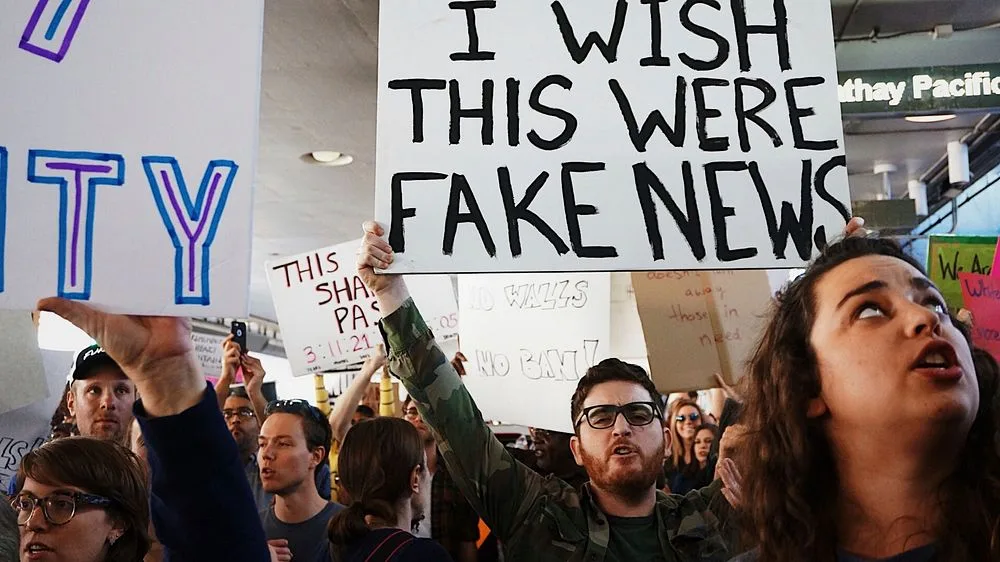Advancements in technology have revolutionized communication, making it quicker and more accessible worldwide. It has helped improve the healthcare sector, upgraded teaching processes, brought in new learning devices, and opened up access to vast entertainment options. It has also helped in accelerating economic growth by increasing productivity and generating new business and employment opportunities.
As far as the developments in communication technology is concerned, the instant messaging services and social media have transformed the mobility of information worldwide and have brought an unimaginable ease into our lives. However, this ease is accompanied with an evil; rapid dissemination of misinformation and fake news. The ill effects have touched all aspects of life, but here I intend to highlight the impact on the economic aspect.

The quick propagation of false information can seriously destabilize economic development. Misinformation, particularly relating to financial markets, businesses, or government policies, can trigger panic among investors, creating stock market volatility and sudden withdrawals of capital. Misinformation can also tarnish the image of businesses, lower consumer confidence, and disrupt market demand, thereby inhibiting investment and slowing economic advancement.
My young mind would always wonder why do humans spread false news when there are no visible people who benefit from it? And then with the passage of time, I started figuring out that in fact there ARE THE BENEFICIARIES of this heinous act. The intentional dissemination of fake news can sometimes be attributed to the financial gains; the sensationalized titles get clicks, driving traffic to websites that generate revenue through advertisements.
Whereas in other cases, false news tends to go viral gaining likes, shares and followers, which can eventually get monetized at the later stage. Apart from the monetary benefits, the propagation of false news is also driven by political gains and in most cases by gaining social status and influence.
While profitable for a narrow segment, fake news can have catastrophic effects on the economy as a whole. One of the most significant incidents that led to the economic slump took place on May 22, 2023. A tweet reported a false story quoting that the US Department of Defense experienced an explosion. The tweet manipulated the American stock market, leading to a temporary drop just after the picture was posted.
The Dow Jones Industrial Average fell by 85 points for a couple of minutes before it regained its position. In turn, a misleading tweet from Eli Lilly on November 10, 2022 asserted that insulin would be made available for free. Even though the drug company quickly denied the statement, its market value dropped by approximately $22 billion the following day.
According to the study by the University of Baltimore and cybersecurity firm CHEQ, online misinformation spread is estimated to cost the world’s economy nearly $80 billion dollars each year. It was also unveiled in the report that the worth of the world’s stock market is prone to a loss of 0.05% on an annual basis due to misleading news.
Similar kind of precedents can be excessively found in Pakistan as well. In 2021, Pakistan received approximately $2.1 billion in FDI inflows. But the figure dropped by 37.6% to $1.34 billion in 2022, and further dropped to $1.1 billion in 2023. The steep decline can be ascribed to misinformation campaigns that spread skepticism regarding the economic stability of Pakistan, keeping both prospective and current foreign investors away.

Disinformation also causes market volatility by instigating fear based on fictitious news. In 2023, news of potential changes in tax policies caused a drop of 3% in the Pakistan Stock Exchange (PSX) in the span of merely a week. Similarly, in October 2023, phony reports about civil unrest in Karachi, along with purportedly violent clashes between police and troops, caused a notable dip in market performance.
These instances justify how the spread of misinformation can upset markets, inducing shocking changes in stock prices and promoting insecurity among investors. These harsh results of the spread of false news necessitate strong and suitably designed regulations. Moreover, regulations need a successful collaboration and compliance from all state actors in order to be successful.
The following are some of the most essential regulatory methods that institutions and governments tend to adopt:
- Defamation and Cybercrime Legislation: Strengthen existing defamation and cybercrime laws to counter misinformation and propaganda online.
- Source Disclosure Requirements: It should be compulsory for media and online sources and make a clear differentiation between fact-checked news, opinion, and advertising.
- Removal Procedures for Content: Establish legal processes to promptly remove false or injurious content without compromising freedom of speech.
- Social Media Regulation: Make it mandatory for platforms such as Facebook, X (Twitter), and YouTube to identify, tag, and remove false news quickly.
- Algorithmic Transparency: It must be made mandatory that social media algorithms rank authentic sources higher than sensational or deceptive content and reveal how content is amplified.
- Educational Campaigns: Incorporate media literacy into school curricula to educate students about how to recognize misinformation and evaluate sources critically.
- Public Awareness Programs: Initiate national campaigns to raise awareness among citizens about the risks of false news and how to cross-check information prior to sharing it.
Putting it altogether, the current era is informative yet deceptive, hence it is pertinent to be vigilant to every bit of information that we receive. Sometimes, a piece of information that we come across is true but circulating it might be disastrous for someone. For this reason, before passing on the news we have received, ask yourself these two questions; 1) Is this information fake or true? 2) Would spreading it lead to positive or negative consequences?


